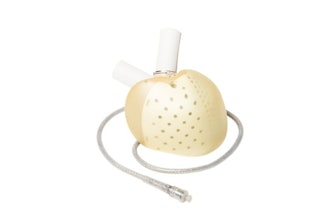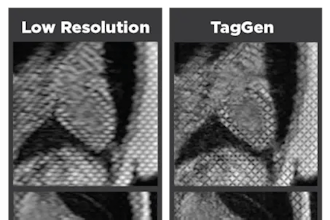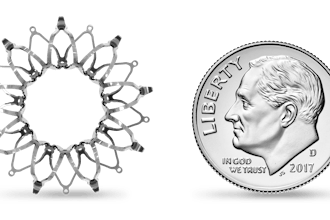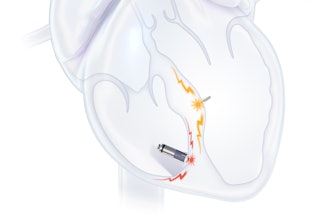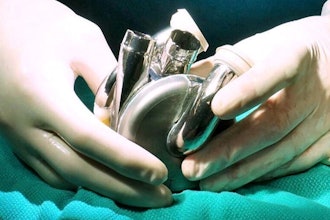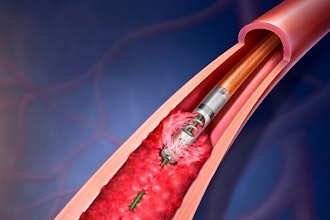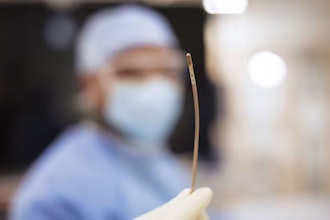
The 4th Academic Annual Conference held by the Mechanical Circulatory Support (MCS) Branch of the Chinese Society of Biomedical Engineering (CSBE), one of the biggest academic gatherings that celebrate the latest accomplishments in technological innovation for improving human health, witnessed the display of the MoyoAssist Extra-VAD – a fully magnetically levitated ventricular assist device (VAD) developed by magAssist to provide reliable and safe short-to- medium-term circulatory support for heart failure patients.
During the conference, Professor Dong Nianguo, the Director of Cardiovascular Surgery Department of Wuhan Union Hospital who spearheaded the clinical trial of MoyoAssist, shared with the attendees the innovative features of MoyoAssist and highlighted how the device addresses the unmet medical needs as a lifesaver that outshines its market counterparts in terms of performance, functionality, and therapy outcomes.
Heart transplantation and mechanical assistance remain the two main choices for critically ill and end-stage patients suffering from severe heart failure whereas the shortage of donor hearts and the sudden-onset heart failure associated death for recipients highlight the urgent need for more innovative therapy options to bridge the clinical gaps.
For years, the R&D efforts of medical companies have been focused on VADs offering long-term support, and available choices for short-to-medium-term systems are limited to intra-aortic balloon pumps (IABP) and extracorporeal membrane oxygenation (ECMO). However, there are drawbacks, with the former lacking the capacity to offer adequate hemodynamic support and the latter reported to be related to increased cardiac afterload and oxygenator associated complications.
Targeting the urgent need for an advanced solution for short-to-medium-term heart support, magAssist has collaborated with China's Wuhan Union Hospital for MoyoAssist. Compact yet powerful, the state-of-the-art device harnesses fully magnetically levitated technology to ensure long support duration and better hemocompatibility, complementing the existing MCS options to improve quality of life and extend survival for patients.
A versatile solution that holds complete independent intellectual property rights, the MoyoAssist Extra-VAD can be deployed in a wide variety of medical scenarios such as a bridge to transplantation (BTT), bridge to recovery (BTR) in cases when patients cannot be weaned from cardiopulmonary bypass, and bridge to decision (BTD) for patients who need preoperative circulatory support. Powered by intelligent magnetically levitated technology, the system delivers greater portability, vibration resistance, and hemocompatibility, with its exceptional performance and quality exceeding global standard-bearers.
A clinical trial led by China's Wuhan Union Hospital in collaboration with other top cardiac treatment centers across the country has proven the device's efficacy and safety in providing life support for heart failure patients. As per Professor Dong's sharing, MoyoAssist offered multiple modes of assistance for left heart, right heart, and bi-ventricular support in 40 clinical cases including BTR, BTT, and BTD. With an average support duration of seven days and 17.5 hours, the system minimized damage to red blood cells and platelets and ensured anticoagulation stability.
As a life-saving device that can provide extra time for patients to recover and medical professionals to devise appropriate treatment plans, MoyoAssist can directly increase the cardiac output, with fewer complications reported. The benefits of the device are more evident when treating patients with acute exacerbation of heart failure or acute cardiogenic shock, as it can help improve organ reperfusion and organ functions, and enhance the overall success rate of subsequent treatments.
With MoyoAssist, Professor Dong and his team at China's Wuhan Union Hospital developed a minimally invasive cannulation approach that minimizes trauma to patients and avoids the risk of complications from a chest reopening. The new procedure has opened new avenues for critically ill patients who cannot undergo major surgeries, reducing surgical risks while helping patients to achieve early ambulation and speedy recovery.











